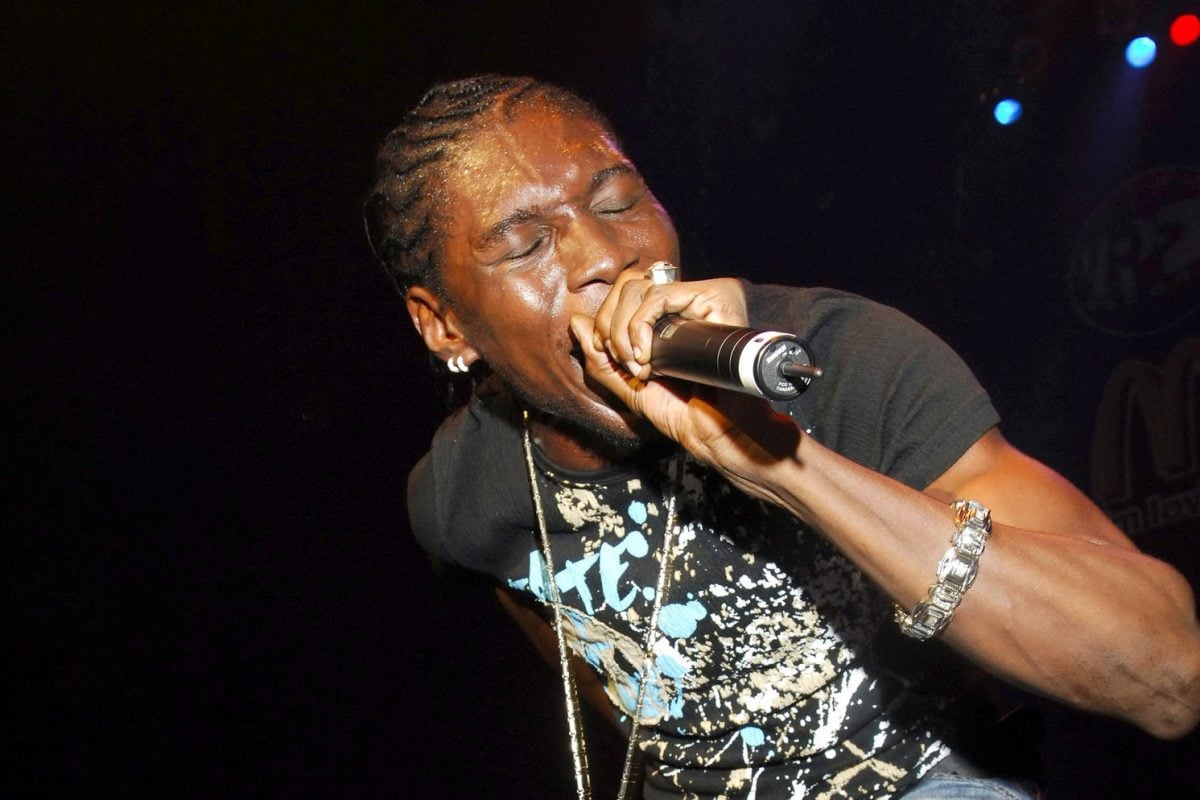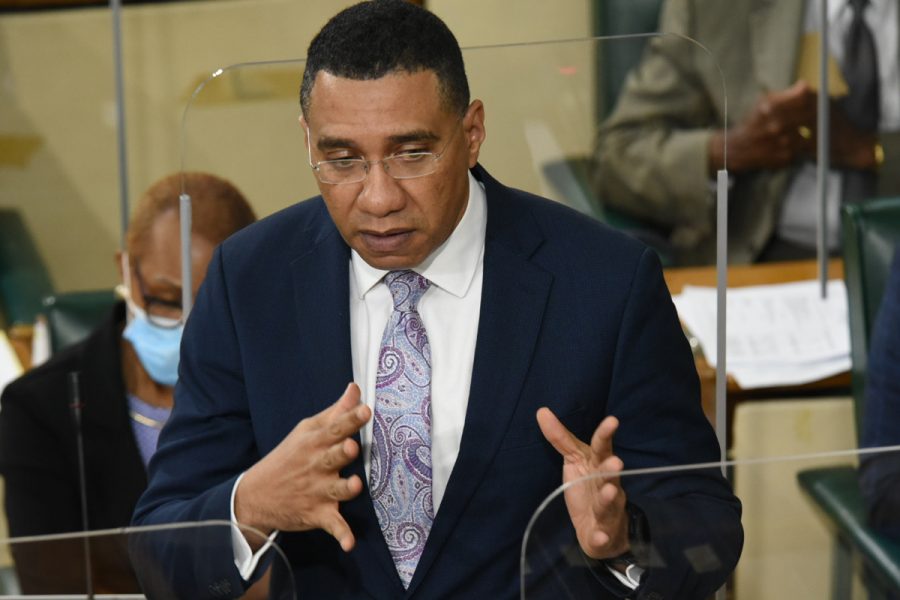The Vybz Kartel Song That Gave The Dancehall King His Big Break

Putting in the work since 1993, Dancehall artist Vybz Kartel finally “bussed” in 2001 as he honed his craft under the tutelage of the legend Bounty Killer.
He initially caught attention as a ghost-writer for the Warlord, followed by collabs such as Gal Clown and Girls Like Mine, but it wasn’t until a so-called ‘gun tune’, Gun Clown, that he broke out as a solo artist amid increased concerns in the early 2000s that violent lyrics were contributing to crime in Jamaica.
Fast forward 20 years and Dancehall is once again being scapegoated as a factor in the island’s crime woes, but key players have been steadfast in the genre’s defense. Mavado, Masicka, Bounty Killer, and Cham have hit back at Jamaican Prime Minister Andrew Holness’ scathing rebuke of “violent” dancehall music in Parliament last week.
Holness, who adopted Daddy1’s ‘BroGad’ title to much fanfare back in 2019, said during the March 30 sitting of the House, “In our music and our culture, in as much as you are free to reflect what is happening in the society, you also have a duty to place it in context.”
However, as UK outlet, The Guardian rightly observed, “the Jamaican music industry has always been a law unto itself”, and this isn’t the first time elected officials have conveniently condemned the culture. The Guardian article in question covered the Gully/Gaza rift, a feud so fiery that the Bruce Golding government had to intervene in 2009, arranging a peace meeting and truce amid the nationwide hostilities.
Meanwhile, the GAZA huncho Vybz Kartel has been unstoppable since Gun Clown — a no-holds-barred ballistic anthem, produced by Winston ‘Wee Pow’ Powell on 2001’s Bad Kalic Riddim.
“How me fi tun gun clown? Me nah do that/ Have it and nuh know how it sound, me nah do that/ Real thugs buss it dem nah come ask you that/ Man ah Kartel man ah nuh Carbon yuh get that”, he spits on the track.
Veteran selectors like Tony Matterhorn agree that Gun Clown gave the Worl’ Boss his big break, with Matterhorn owning at least two dub versions of the song. Among the gory bars that built up Worl’ Boss’ street cred are “Diss real thugs and get cut up like ah Easter bun/ Marrow fly go Egypt, man kick yuh head like dem ah tek free kick.”
Most Hon. Brogad added in his address to Parliament, “Dat yuh tek up the AK-47 and tun it inna a man head … That is not right. And though you have the protection of the constitution to sing about it, you also have a duty to the children who are listening to you.”
Ironically, the Teacha cites a few other ‘authorities’ on the grisly, decades-old track, as well as the very act Holness decried, “Tell me bout him know Dudus dem sey Zeeks ah buss dem/ As soon as him spoken some west man mek him head open.”
Even then, Vybz Kartel was adamant that hard-hitting Dancehall had little to do with Jamaica’s horrendous crime rate.
In his 2003 OnStage debut, Kartel detailed his arrival in Dancehall for host Winford Williams. “My message is raw, mucky, dutty, greasy, grimy and I want people to see and feel it. Music on a whole is expression, art is expression of one’s life and experiences so that is what I’m bringing to the world.”
He insisted that he wanted fans to embrace his witty, lyrical delivery of realities he’d seen or lived through, rather than viewing it as him upholding or propagating a particular lifestyle.
“Some songs that Vybz Kartel came to prominence with on the underground scene, the people know, songs like Gun Clown, Sen On , the people know what Vybz Kartel is all about,” he said.
When asked whether he subscribed to the argument that the music contributes to crime, Kartel replied, “No, I would never do that because I never heard that Sylvester Stallone or Arnold Schwarzenegger robbed any place yet, but I always see them in movies firing shots. Movies is art, acting is art and music is art. Art is a representation and reflection of life. Yuh cyan mek life be a representation of art. It’s just music.”
He followed the pop culture comparison with a note on inspiration.
“Right now we as artists we just express what we see around us, experiences, firsthand and secondhand. Yuh hear somebody expressing a song that doesn’t mean he’s the person that had the first hand experience.”
Among the incarcerated deejay’s subsequent antics was bringing a casket to the Sting 2008 stage for his sworn rival Mavado, which read “R.I.P Barber Bwoy”. Williams asked in the interview if Kartel felt artists had the power to influence behavior or felt any responsibility to his fans.
The deejay replied, “I wouldn’t see that as more special than any other medium because I neva see nobody voting for a artist. I see them vote for politician, that mean politics have a great influence on the people too.” He added slyly that the late legend himself, Bob Marley, couldn’t change the course of history with arguably his biggest hit.
“When Bob Marley said “One Love, one heart..” in 1980, the most people died in Jamaica, so music has no influence on crime as far as I see it. I don’t know if I’m wrong that’s just my opinion.”
Sizzla’s recent utterances on the dire effects of gun violence echo the Fever deejay’s archived sentiments. Despite the slew of popular gunplay anthems to his credit, the Reggae singer sought to distinguish that the messages weren’t meant to be applied in real life.
“Bun gun. Wi nuh waan hear bout nuh gun,” Sizzla told his fans on Instagram Live last month. “When yuh hear wi do a likkle ragamuffin song, gun song, a jus fi di music and di purpose a Dancehall; di purpose a sound clash. Keep it in di music,” he added.
The Prime Minister has since doubled down on his statement, insisting that while the content may be rhythmic and catchy, “at some point we have to realize that what we may be doing, is glorifying; that what we may be doing, is legitimizing violence.”

Many have labeled his BroGad moniker and election dubplate ploy as duplicitous in light of his bitter criticisms during a time when the entertainment industry remains in the dark due to COVID 19.
Still, the double standard between the lyrics and lifestyle of some of the genre’s contributors remains a touchy subject, with Kartel, Ninjaman ( Murda Dem ), Tommy Lee Sparta ( Rich Badness ), and Laden ( Nine Night ) being whisked off to jail, as well as Rytikal ( King Ina War ), Quada ( Brawlin Murda ) and Munga Honorable ( Bad From Mi Born ) still battling legal woes.
This article is part of a series published in recognition of the anniversary of Vybz Kartel’s physical absence from, and continued influence over Dancehall. See also:
- How Did Vybz Kartel Get His Stage Name? He Wanted To Be Different
- Is Vybz Kartel Still The King Of The Dancehall?
